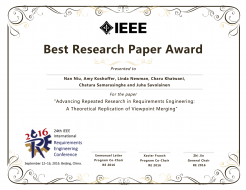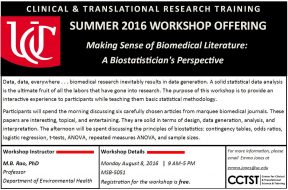September program for the
UC GIS (Geographic Information Systems) Learning Community.
Date: Wed Sept 28, 2016
Time: 3:15 – 4:25
Venue: Langsam 462
We have three presenters who will talk on very diverse topics.
1st Lightning Talk – Carolyn Hansen – Metadata Librarian, UC Libraries –Digital Humanities projects using GIS visualizations and discuss how GIS applications can be used to answer humanities research questions.
2nd Lightning Talk – Jeremy Koster – Assoc Professor, A&S Anthropology – Using GIS and remote sensing to understand the spread of the agricultural frontier in the rain forests of Nicaragua
In depth presentation – Jeffery Timberlake- Assoc Professor, A&S Sociology – Understanding and accessing census data
We will also be joined by James Lee who will talk briefly about the Digital Humanities and Scholarship Center and his role as Co-Director and his vision for the center.


